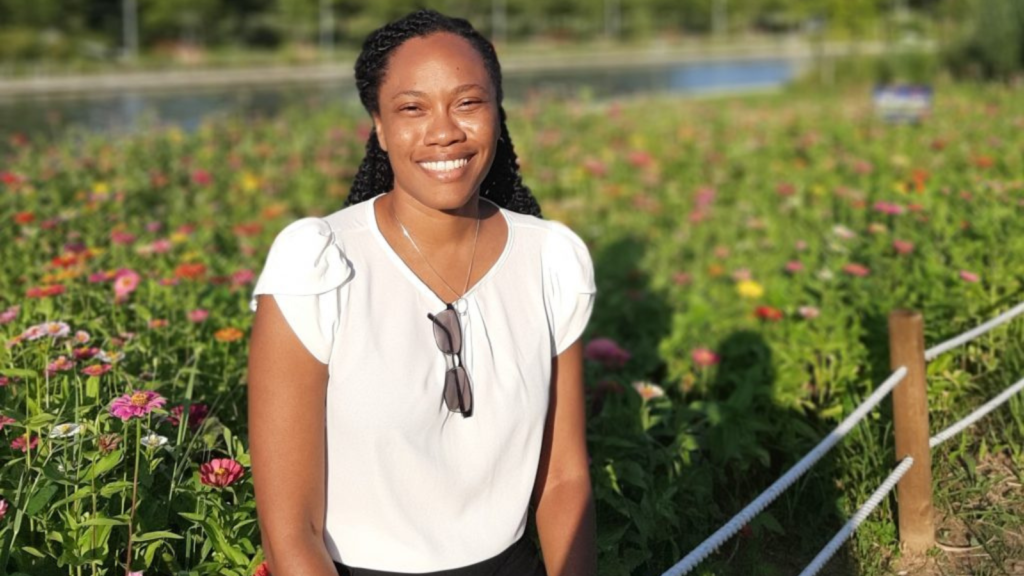As the international climate conference, COP28, begins on Thursday, there are some specific actions the Caribbean Natural Resources Institute (CANARI) are looking to see accomplished as the organisation launches its Caribbean Climate Justice Alliance.
CANARI is a regional technical non-profit organisation which has been working across the Caribbean for more than 30 years in promoting and facilitating stakeholder engagement in the stewardship of natural resources in the region.
The institute’s Senior Technical Officer Dr Ainka Granderson said, “Since 2020, we’ve been working on climate justice because we realise that there are a lot of voices, particularly from those on the ground, so think about us small-scale farmers and fisherfolk, even persons with disabilities, and other marginalised groups that we’re not hearing from in this wider conversation around this climate challenge.”
Climate Justice is a new buzzphrase in the climate space, as those most affected rarely have a seat at the negotiating table, much less a voice in the matter.
Granderson explained the concept, “When we hear the word justice, we think about people getting what they deserve. We think about knowing or defending your rights, we also even think about restoring balance.”

Granderson added, “Where things are unfair or unjust, we think about how do we correct this? If we apply that to climate change, you know, we can think about the fact that the impacts from the weather changes that we’re seeing are not distributed or experienced equally. When we think about how we address that inequality in the process, that’s what climate justice is about.”
In CANARI’s Caribbean Climate Justice and Resilience Agenda, the organisation outlined eight priority needs and actions by 2030 for vulnerable groups and wider civil society across the Caribbean, particularly coming out of discussions at COP28.
At the crux of the agenda is ensuring that those on the frontlines of climate change impacts are heard while curbing emissions and climate financing.
“We want to see that policymakers and those that are making the decisions are taking into account the needs of those on the frontlines who we are trying to help as part of the climate actions that we’re taking and the responses that we’re taking to this challenge that we’re facing. If there’s flooding, if there’s rising sea levels, this hot spell that we recently experienced in the last few months – are the benefits going to those that are most affected, or those are the most vulnerable? That’s what we want to see,” Granderson said.
At COP28, there are calls for increased ambition to reduce emissions which produce greenhouse gases that have dangerously warmed the planet.
While CANARI echoes those sentiments, Granderson added, “Because the impacts from climate change are causing a lot of problems impacting people’s livelihoods, their income, well-being, health and all these things, we want to see more focus on adapting to the impacts of climate change in terms of funding and capacity building for groups on the ground so that they can design and implement solutions that help them.”
CANARI and several other members of the alliance will be on the ground in Dubai, participating in COP28 events which run from today to December 12
CANARI’s Caribbean Climate Justice Alliance Priorities:
- Curbing emissions to limit global temperature increase to 1.5˚ C.
- Scaling up locally-led solutions for adaptation and loss and damage.
- Improving access to and delivery of climate finance for frontline communities, small and micro enterprises, and civil society organisations as part of a ‘whole of society’ approach.
- Scaling up just, nature-based solutions for resilience.
- Supporting a just transition for pro-poor, inclusive, sustainable, and resilient development.
- Promoting gender equitable and socially inclusive approaches to climate action.
- Promoting youth and intergenerational equity as core to the climate response.
Integrating a rights-based and earth-centred approach addresses all these priorities and ensures climate justice.
This story was originally published by the Trinidad and Tobago Guardian, with the support of Climate Tracker’s COP28 Climate Justice Reporting Fellowship.